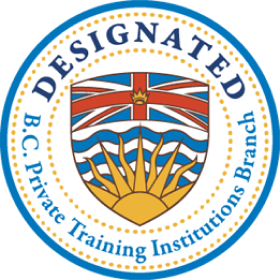GET MORE INFO NOW!!!
Start your journey towards a new career today by requesting program details.
 Financial Assistance
Financial Assistance
 Career Options
Career Options Start Dates
Start Dates Job Opportunities
Job Opportunities

Assessment
Is Career Training Right For You? Find Out!
Posted by AOLCC | 26th September 2023

In the bustling world of corporate organizations, executive assistants (EAs) play key roles. Essentially, they serve as guardians, trusted allies, and foundational support for executives. They provide administrative assistance, conduct staff training, manage office operations, and even guide executives on crucial decisions that can significantly impact the company’s success.
Is this position right for you? Gaining insight into the process of becoming an executive assistant can aid in determining whether this career path aligns with your aspirations. In this blog, we’ll examine the role in-depth and highlight the educational requirements and essential skills.
An executive assistant’s role revolves around providing administrative support. This can range from managing schedules, organizing events, and handling correspondence to liaising with other departments and even representing the executive in certain contexts.
However, EAs are not just administrative wizards; they often play a strategic role in decision-making processes, project management, and sometimes even dabbling in public relations or human resources. In essence, they act as the right hand of top executives, understanding the nuances of business operations and facilitating communication at the highest levels.

Organization is the cornerstone of an EA’s role. Managing multiple tasks, schedules, and projects demands impeccable organizational skills. Further, as executives’ primary point of contact, EAs must articulate ideas, instructions, and messages clearly and effectively, both verbally and in writing.
In today’s digital age, familiarity with office software, word processing and scheduling tools, and communication platforms is among the most desirable executive assistant skills. Moving on, another integral aspect of the job is discretion. Given the sensitive information they often handle, EAs must be trustworthy and always exercise discretion.

Unexpected challenges can emerge without warning. Therefore, problem-solving is invaluable for executive assistants, emphasizing the ability to think on one’s feet and devise solutions swiftly. The rapid evolution of the business landscape also necessitates adaptability, which ensures that both the EA and the executive remain productive and efficient amidst change.
Lastly, interpersonal skills are of utmost importance. Building and nurturing relationships both within and outside the organization can significantly influence the achievement of company objectives. EA’s often interact with high-profile executives in their industry. Therefore, etiquette and interpersonal skills are key.
So, What do you need to become an executive assistant? Here we get into the nitty-gritty of how to become an executive assistant.
At a minimum, a high school diploma is essential. However, many employers prefer candidates with a bachelor’s degree, especially if it’s in a field relevant to the business or industry. Acquiring specialized training and obtaining relevant certifications is another step in the right direction. Various institutions, AOLCC included, offer courses tailored for aspiring EAs. These programs teach administrative tasks, business communication, and other necessary skills. Securing a certification, like the Certified Administrative Professional (CAP) from the International Association of Administrative Professionals (IAAP), can give you an edge.
Next, look to gain relevant experience. Start by seeking entry-level roles that provide administrative support. With time and experience, you can climb the ranks and transition into a full-fledged EA position. Don’t forget the power of networking. This often plays an underrated role. Engage in industry events, join relevant groups, and build connections. It’s not just about what you know but also about who you know.
At a minimum, a high school diploma is essential. However, many employers prefer candidates with a bachelor’s degree, especially if it’s in a field relevant to the business or industry. Acquiring specialized training and obtaining relevant certifications is another step in the right direction.
Are you looking for world-class executive assistant training?
Contact AOLCC BC for more information.
Start your journey towards a new career today by requesting program details.
This fun, online quiz takes 3 minutes to complete and you’ll get a personalized report. Identify your strengths and social style plus the training and positions you’re best suited for.Get Your Career Training Readiness Score Now

B.C. Private Training
Institutions Branch

B.C.
Education
Quality Assurance
699 Victoria Street
Kamloops, BC V2C 2B3
Phone: (250) 372-5429
Fax: (250) 372-5462
#204-347 Leon Avenue
Kelowna, BC V1Y 8L7
Phone: (250) 868-3688
Fax: (250) 868-3511
1551 Estevan Rd #7,
Nanaimo, BC V9S 3Y3
Phone: (250) 753-4220
Fax: (250) 753-4295
#200-754 Goldstream Ave.
Victoria, BC V9B 5T2
Phone: 250-391-6020
Fax: (250) 391-6021

